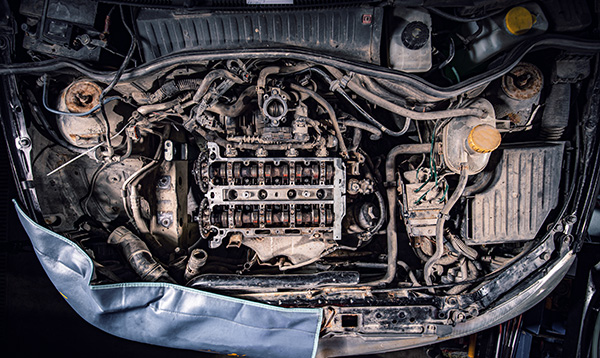
Fuel efficiency is a hot topic, especially with rising fuel costs and growing environmental concerns. One of the key players in this conversation is the diesel engine, often touted as being more fuel-efficient than its gasoline counterpart. But what exactly makes diesel engines more fuel-efficient?
The Basics of Diesel Engines
The primary distinction lies in how the gasoline and diesel engines ignite the fuel. In gasoline engines, a spark plug ignites the air-fuel mixture. In contrast, diesel engines rely on compression to ignite the fuel. This fundamental difference influences various aspects of engine performance and efficiency.
Higher Compression Ratios
One of the main reasons diesel engines are more fuel efficient is due to their higher compression ratios. Compression ratio refers to the difference between the largest and smallest volume in the engine's combustion chamber. Diesel engines typically have compression ratios between 14:1 and 25:1, whereas gasoline engines range from 8:1 to 12:1.
Higher compression ratios in diesel engines lead to better thermal efficiency, meaning the engine converts more of the heat generated during combustion into useful work. This efficiency directly translates to better fuel economy, as less fuel is needed to produce the same power.
Energy Density of Diesel Fuel
Diesel fuel itself is another factor contributing to the superior fuel efficiency of diesel engines. Diesel has a higher energy density compared to gasoline, meaning it contains more energy per gallon. This higher energy content allows diesel engines to extract more power from a smaller amount of fuel.
Diesel fuel's chemical structure makes it less volatile than gasoline, leading to a more controlled and efficient combustion process. This controlled combustion reduces energy losses and enhances fuel economy.
Lean Burn Operation
Diesel engines operate using a lean burn principle, which means they use more air and less fuel in the combustion process compared to gasoline engines. Lean burn operation minimizes fuel consumption while still generating sufficient power.
This efficiency is particularly evident at part-load conditions, such as cruising on the highway, where diesel engines maintain excellent fuel economy. Gasoline engines, on the other hand, tend to use more fuel to achieve the same power output in similar conditions.
Turbocharging and Direct Injection
Modern diesel engines often come equipped with turbochargers and direct fuel injection systems, which further enhance their efficiency. Turbocharging forces more air into the combustion chamber, allowing for more fuel to be burned and more power to be generated without increasing the engine size.
Direct injection, where fuel is sprayed directly into the combustion chamber, improves the precision of the fuel-air mixture and ensures optimal combustion. This precise control reduces fuel wastage and improves overall efficiency.
Durability and Longevity
Due to their higher compression ratios, diesel engines are built to withstand higher pressures and temperatures. This robust construction not only contributes to their fuel efficiency but also makes them more durable and longer-lasting than gasoline engines.
Longer engine life means fewer replacements and lower overall costs, adding another layer of economic efficiency to diesel engines. This durability is particularly advantageous for commercial vehicles and long-distance driving.
Environmental Considerations
While diesel engines are more fuel efficient, it's important to address their environmental impact. Diesel engines have traditionally been criticized for higher nitrogen oxide (NOx) emissions and particulate matter. However, advancements in technology, such as selective catalytic reduction (SCR) and particulate filters, have significantly reduced these emissions.
Modern diesel engines are much cleaner and can meet stringent emission standards while maintaining their fuel efficiency. The balance between efficiency and emissions continues to improve, making diesel engines a viable option for environmentally conscious consumers.
Is your diesel engine not performing as efficiently as it should? Schedule an inspection with our experts at Elite Imports & Auto Repair and get back on the road at peak efficiency.